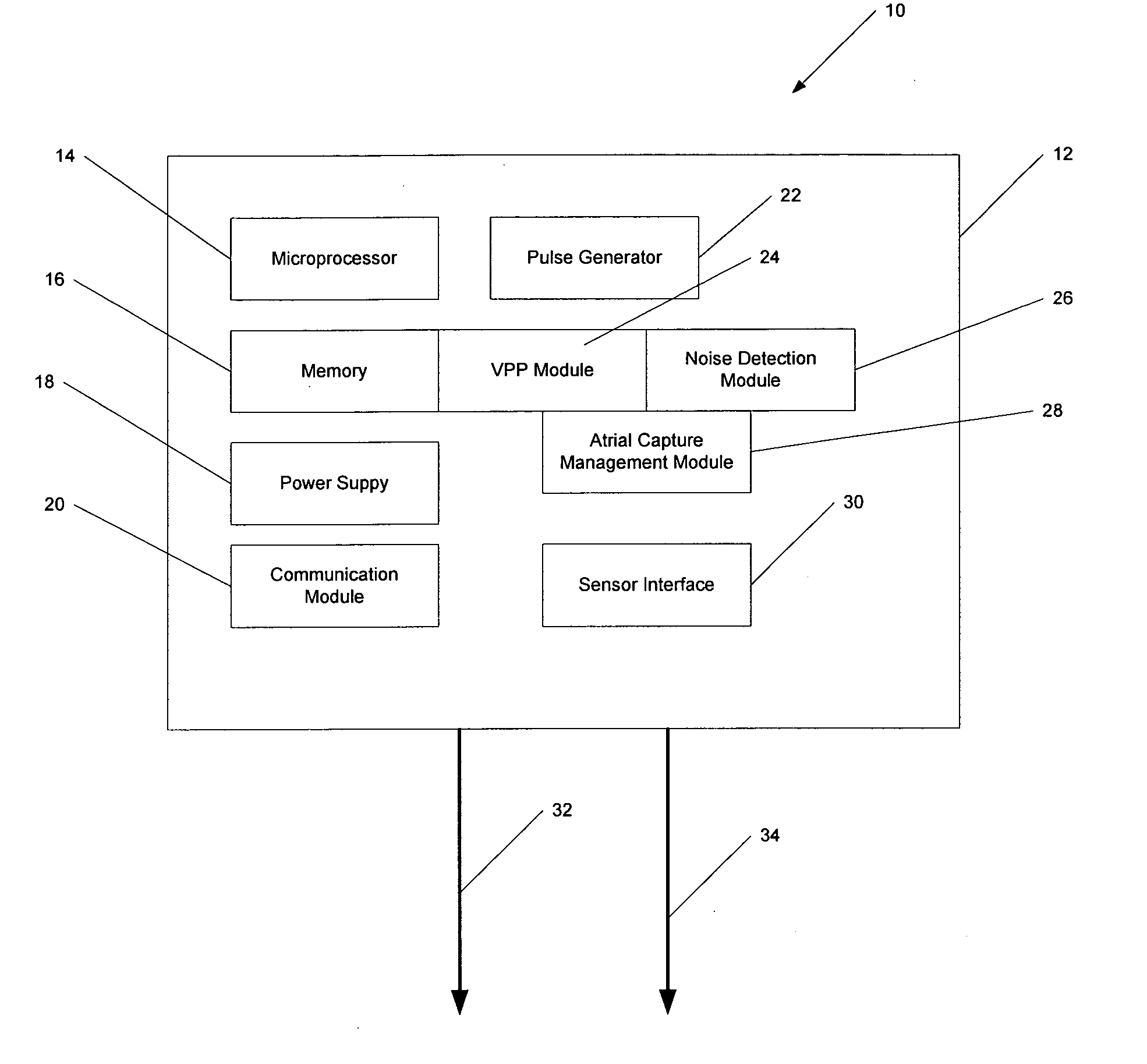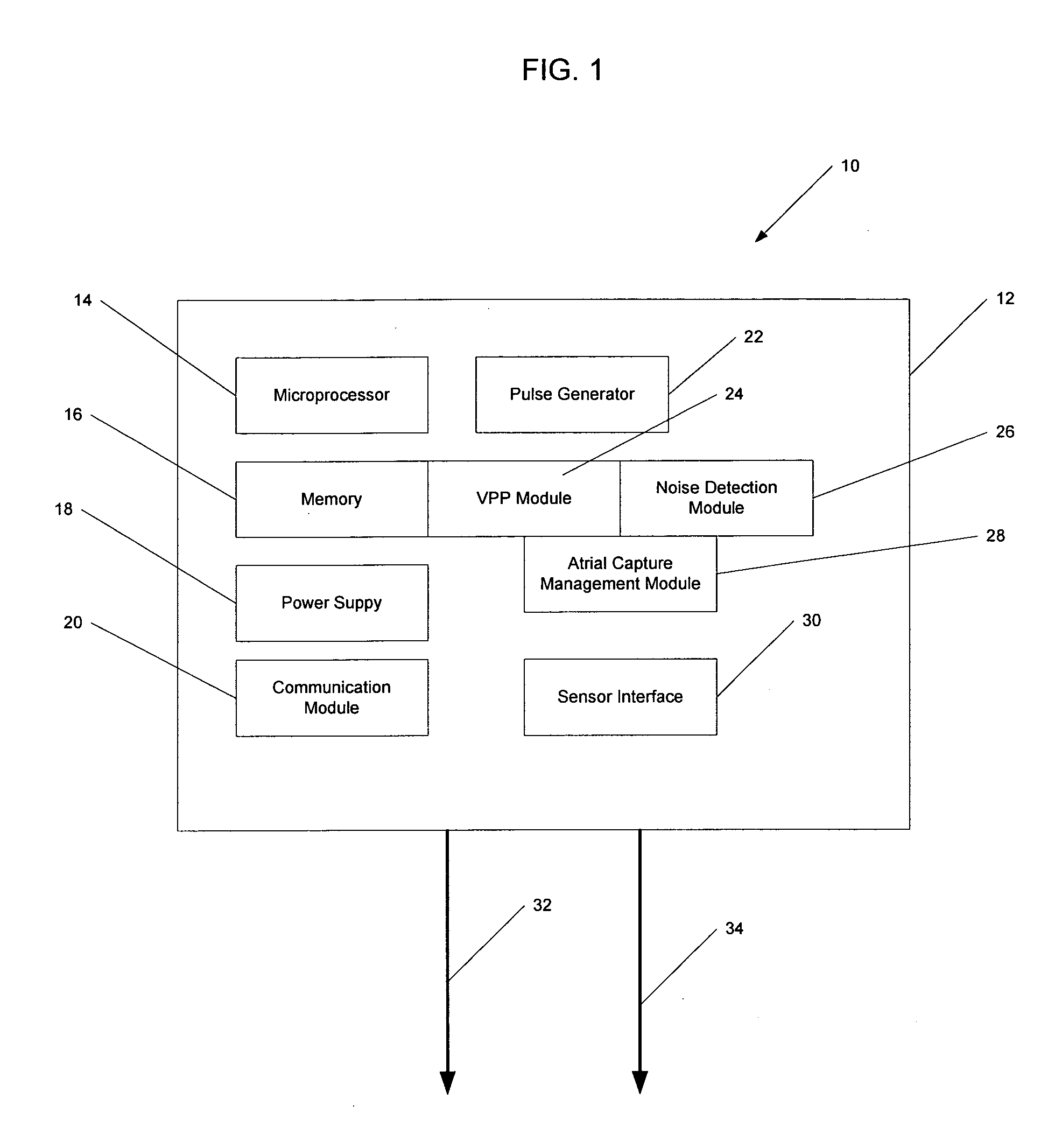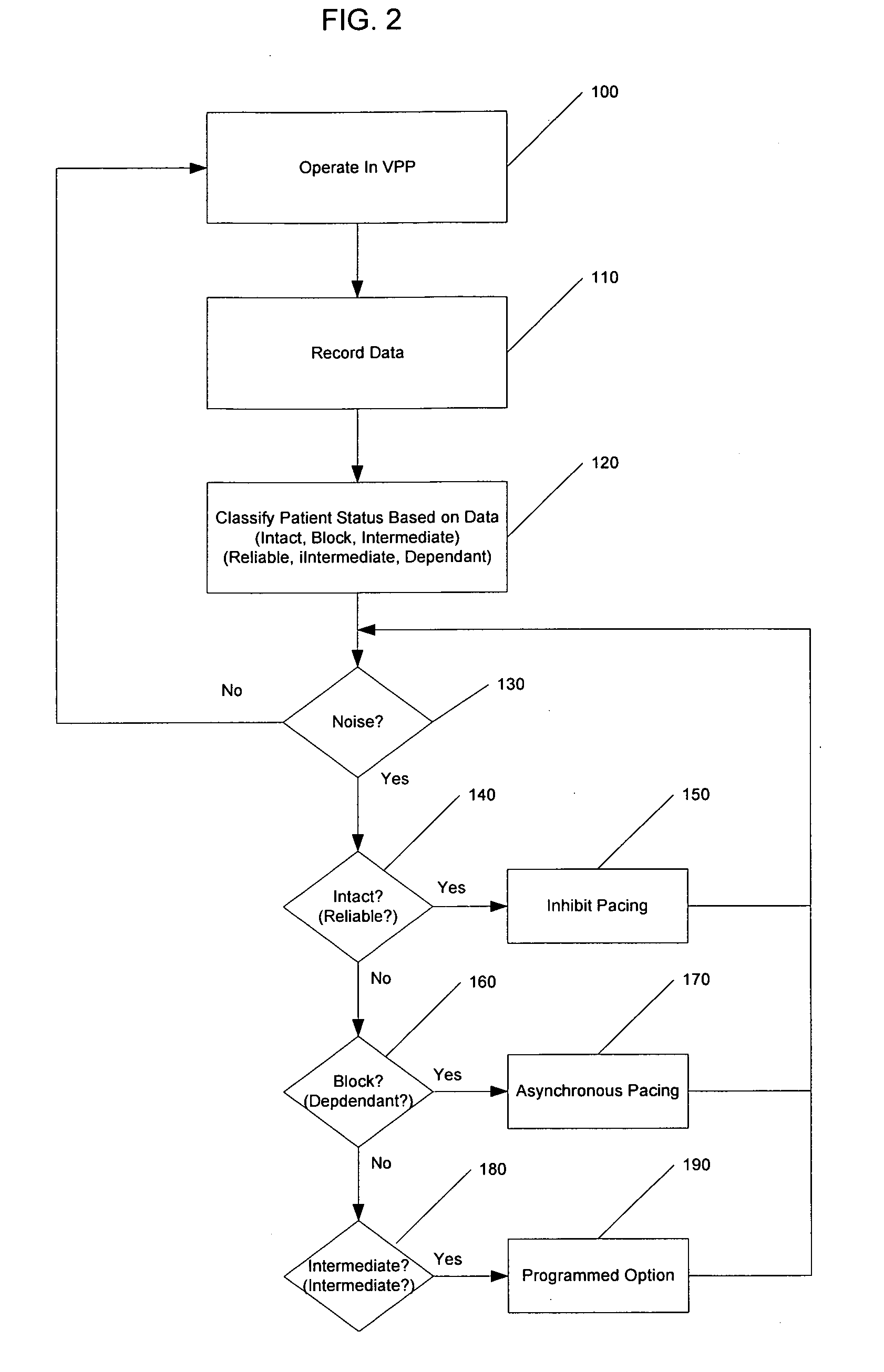Implantable medical device with adaptive operation
a medical device and adaptive technology, applied in the field of medical devices, can solve the problems of inability to provide ventricular pacing (or sensing) and the precluded effect of intrinsic conduction in most cardiac cycles
- Summary
- Abstract
- Description
- Claims
- Application Information
AI Technical Summary
Problems solved by technology
Method used
Image
Examples
Embodiment Construction
[0015]FIG. 1 is a schematic illustration of an implantable medical device (IMD) 10 having pacing capabilities. While not illustrated, IMD 10 may also include a variety of other monitoring, diagnostic and therapeutic functions. Further, FIG. 1 is not meant to comprehensively illustrate all components of an implantable pacemaker.
[0016] The IMD 10 includes a housing 12 that contains a microprocessor 14, memory 16, a power supply (e.g., battery) 18, a communication module 20 that facilitates telemetry to an external device and a pulse generator 22 for generating pacing pulses. A sensor interface 30 is provided to collect data from one or more sensors / electrodes, one or more of which may be disposed on leads 32, 34. The pacing stimuli generated by the pulse generator 22 is deliverable via the leads 32, 34. Also illustrated in FIG. 1 are a VPP module 24, noise detection module 26 and atrial capture management module 28. It should be appreciated that these functions may be algorithms stor...
PUM
 Login to View More
Login to View More Abstract
Description
Claims
Application Information
 Login to View More
Login to View More - R&D
- Intellectual Property
- Life Sciences
- Materials
- Tech Scout
- Unparalleled Data Quality
- Higher Quality Content
- 60% Fewer Hallucinations
Browse by: Latest US Patents, China's latest patents, Technical Efficacy Thesaurus, Application Domain, Technology Topic, Popular Technical Reports.
© 2025 PatSnap. All rights reserved.Legal|Privacy policy|Modern Slavery Act Transparency Statement|Sitemap|About US| Contact US: help@patsnap.com



